Halt Rohingya repatriation plan: HRW
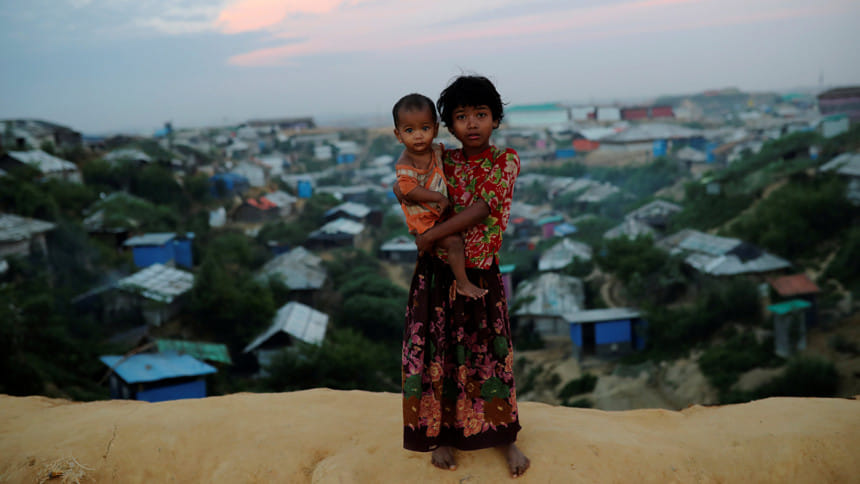
The Bangladesh government should follow the recommendations of senior United Nations refugee and human rights officials and immediately halt the proposed repatriation of Rohingya refugees to Myanmar, Human Rights Watch said today.
The authorities have deployed the army in refugee camps ahead of carrying out a plan to repatriate a first group of 2,200 Rohingya refugees, according to a report of the New York-based rights organisation published today.
"The Bangladesh government will be stunned to see how quickly international opinion turns against it if it starts sending unwilling Rohingya refugees back into harm's way in Myanmar," said Bill Frelick, refugee rights director at Human Rights Watch.
"That Dhaka deployed its army into the camps is a red flag that this terrified community is not willing to return," Bill Frelick said.
The report mentioned that the first batch of 150 people from 30 families were taken to a transit camp in preparation for their return.
Bangladesh's refugee relief and repatriation commissioner, Mohammad Abul Kalam, told journalists the families would be repatriated through the Ghumdhum point of Bandarban district on November 15, HRW said.
"They are fully prepared," the HRW quoted Abul Kalam as saying. "We have made all arrangements."
Subsequent reports, however, indicated possible delays in the starting date, it said.
Under pressure from China, Bangladesh and Myanmar officials met in Dhaka on October 30 and 31, the third meeting of a joint working group to carry out a bilateral repatriation agreement signed in November 2017, the report claimed.
Following the meeting, representatives announced that they had a "very concrete plan" to begin repatriations in mid-November, with the first round to include 2,260 Rohingya from 485 families.
According to Myanmar officials, the plan calls for 150 refugees to be received each week, starting on November 15, at the Nga Khu Ya reception center before being transferred to the Hla Poe Kaung transit camp.
HRW, in its report, said although Bangladesh authorities have said all repatriations would be voluntary, they have also been strongly encouraging the Rohingya to return.
The authorities have built two repatriation centers where the refugees will remain until their return to Myanmar, it said.
The imminent return has caused panic in the refugee camp. "This is forced. This is involuntary. Not one person in the camp wants to go back," a Rohingya refugee told Human Rights Watch. "They will kill us if we go back."
"Camp situation very bad now," another refugee wrote on WhatsApp, saying that some families were being forced to go to transit centers. "Authorities are surrounding [the] camp, Rohingya people will not go back to Myanmar without justice and security of the UN."
More than 750,000 Rohingya have fled to Bangladesh over the past year to escape the Myanmar military's campaign of ethnic cleansing and crimes against humanity. They joined about 200,000 refugees who had fled previous waves of violence and persecution. A UN fact-finding mission found "sufficient information to warrant the investigation and prosecution of senior officials in the Tatmadaw [armed forces] on charges of genocide."
The Myanmar government has rejected these allegations. It has said that it is ready to accept repatriated refugees and has accused Bangladesh of delaying the process. However, the Myanmar authorities have done nothing to create conditions for safe and dignified returns or to address the root causes of the crisis, including systematic persecution and violence, statelessness, and impunity for grave violations by the military. Myanmar has refused to acknowledge the Rohingya ethnicity of the refugees or to recognize them as its citizens.
The Rohingya fear that upon return, they will be in placed in detention camps. They point out that more than 124,000 Rohingya have been similarly confined for six years, since being displaced by violence in 2012.
The "reception centers" and "transit camp" Myanmar built this year to process and house returnees from Bangladesh are surrounded by barbed-wire perimeter fences and security outposts, similar to the physical confinement structures in the central Rakhine internally displaced persons camps. The Hla Poe Kaung reception center was built on land where Rohingya had been living before security forces burned and the government bulldozed the area, according to HRW.
"Nothing the Myanmar government has said or done suggests that the Rohingya will be safe upon return," Frelick said. "Bangladesh needs to uphold its international obligations – and maintain its well-earned international reputation for providing refuge to the Rohingya – and not grab at quick and illusory solutions that will once again put desperate people at risk."

 For all latest news, follow The Daily Star's Google News channel.
For all latest news, follow The Daily Star's Google News channel. 

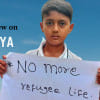
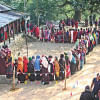
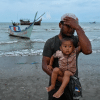

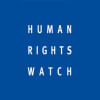

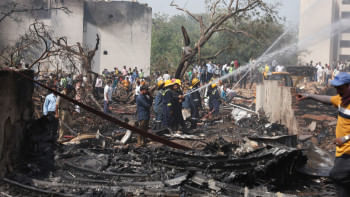
Comments